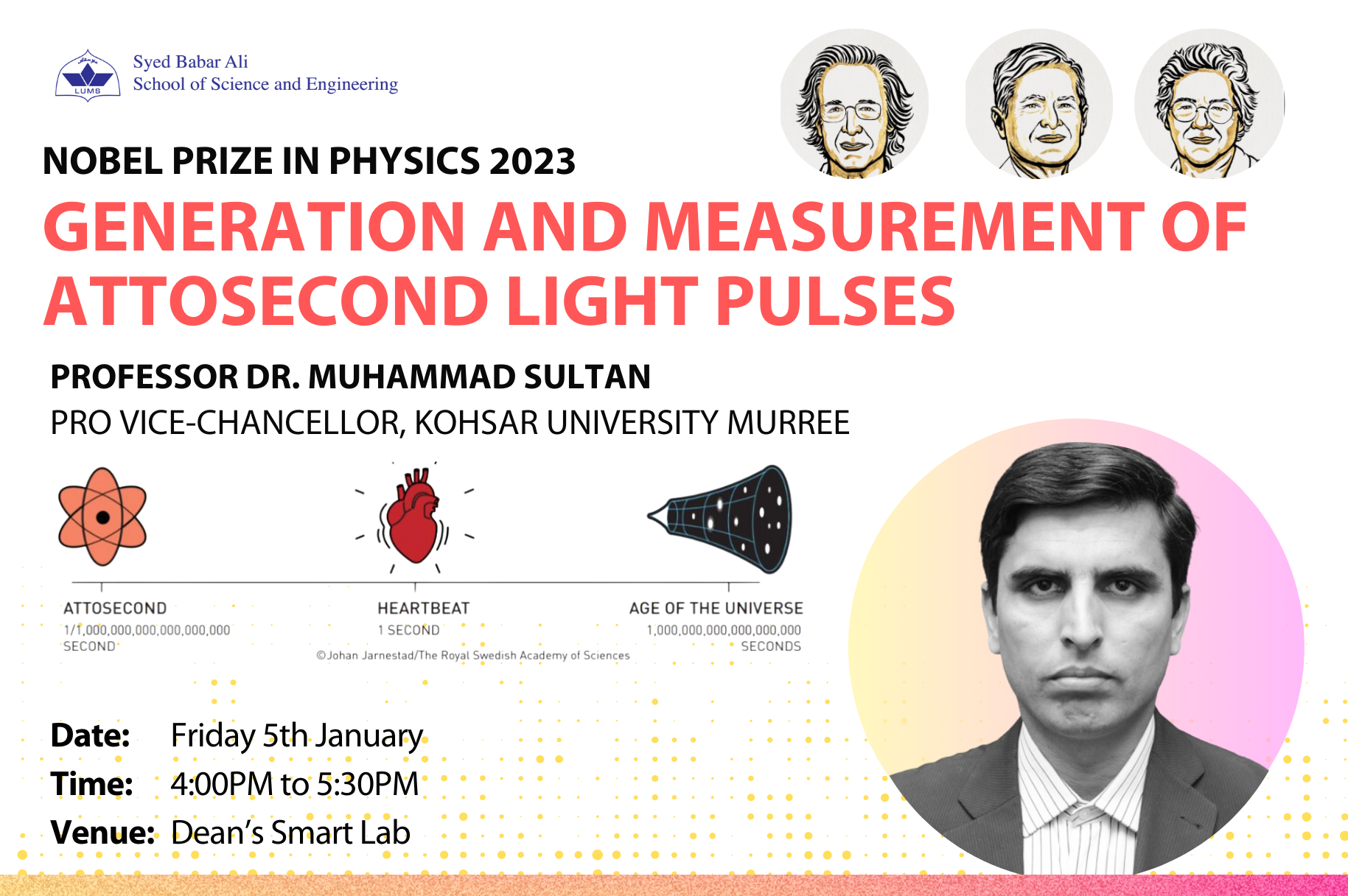
Nobel Prize in Physics 2023 - Generation and Measurement of Attosecond Light Pulses
This talk will briefly summarize the research work of this year's Nobel laureates, from the perspective of the Nobel Prize. The experimental basis of attosecond pulses was set by Anne Huillier and many others while working and interpreting the higher harmonics generations (HHG) process. Pierre Agostini and his team were able to experimentally realize the attosecond pulse train. They developed a quantum interferometric-based method, the so-called “RABBIT”, to measure that pulse train. Ferenc Krausz and his team were able to separate individual attosecond pulses and ultimately used the attosecond streak camera to measure those pulses. From the dawn of this century, these attosecond pulses have been used to modulate and study the dynamics of electrons in different systems. We will also discuss some basics for physics students like nonlinear optical interactions, mode locking to generate ultrashort pulses of light, interaction of the pulsed laser field with matter, and streaking/modulation of electron motion by short pulses of light.
Dr. Muhammad Sultan works as Professor of Physics and Pro Vice-Chancellor at Kohsar University Murree. He completed his Ph.D. in the field of Experimental Condensed Matter Physics (Ultrafast Dynamics) from Freie University Berlin, Germany in 2012. He has 10 months post PhD experience at Lawrence Berkeley National Laboratory, Berkeley California where he worked on the spectroscopy of nanomaterials for energy applications. He served in several academic and administrative positions at Kohsar University Murree such as Chairperson Department of Physics, Campus-Incharge, and Director Office of Research, Innovation and Commercialization (ORIC). Before joining Kohsar University, he worked as Principal Scientist at the Nanoscience and Technology Department of the National Centre for Physics (NCP) Islamabad, where he led the photovoltaics research group. He played a key role in the establishment of the Nanoscience and Technology Department’s laboratories at NCP including X-ray Photoelectron Spectroscopy (XPS) and SPM systems. He has several publications in well-reputed international journals and has presented his work at numerous international conferences as well. He has successfully completed international projects including a Pakistan-German research collaboration project between NCP and the University of Konstanz, Germany. He works on nanomaterials for energy and sensing applications. His research interests include the next generation of solar cells and optoelectronics, ultrafast dynamics, spectroscopy of nanomaterials, charge transfer & dynamics of solids, surfaces & interfaces, printed electronics, solution-processed semiconductors, nanomaterials, and their emerging applications.

